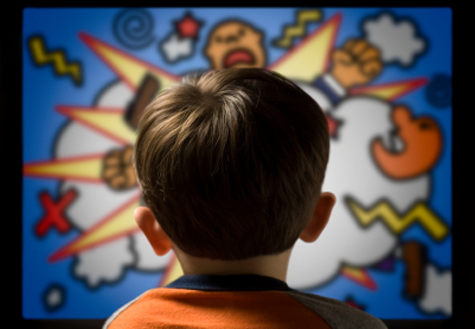Mental and Psychological Effects of Children’s Cartoons
27 Απριλίου 2011
 Children have become much more interested in cartoons over many years and it has become a primary action to some lives. Typically, children begin watching cartoons on television at an early age of six months, and by the age two or three children become enthusiastic viewers. This has become a problem because too many children are watching too much television and the shows that they are watching (even if they are cartoons) have become violent and addictive. The marketing of cartoons has become overpowering in the United States and so has the subliminal messaging. The marketing is targeted toward the children to cause them to want to view the cartoons on a regular basis, but the subliminal messaging is for the adults’ to target them into enjoying the “cartoons”. This is unfortunate because children watch the cartoons on the television and they see material that is not appropriate for their age group. The Children who watch too much cartoons on television are more likely to have mental and emotional problems, along with brain and eye injuries and unexpectedly the risk of a physical problem increases.
Children have become much more interested in cartoons over many years and it has become a primary action to some lives. Typically, children begin watching cartoons on television at an early age of six months, and by the age two or three children become enthusiastic viewers. This has become a problem because too many children are watching too much television and the shows that they are watching (even if they are cartoons) have become violent and addictive. The marketing of cartoons has become overpowering in the United States and so has the subliminal messaging. The marketing is targeted toward the children to cause them to want to view the cartoons on a regular basis, but the subliminal messaging is for the adults’ to target them into enjoying the “cartoons”. This is unfortunate because children watch the cartoons on the television and they see material that is not appropriate for their age group. The Children who watch too much cartoons on television are more likely to have mental and emotional problems, along with brain and eye injuries and unexpectedly the risk of a physical problem increases.
Mental and Psychological Effects on Children who Watch Cartoons From the time children start school to the time that they graduate they are averaged to spend around 13,000 hours in school. This may seem like an awful lot of hours to attend school unless it is compared to the hours a child watches television, which is nearly 18,000 hours (from the time school is started to the time of graduation). This comparison is an outrage because of the amount of television that is watched by a child will have an effect on their brain, emotions and their sense to feel pain. In a 2000 report on adolescent violence, the U.S. Surgeon General David Satcher stated that more aggressive behavior in a young child’s life is caused by frequently watched entertainment that incorporates violence in it. This has become a public health issue and because of the research findings; the American Psychological Association passed a resolution in February of 1985, informing broadcasters and the public about the dangers violence on the television has on children. Three major effects have been proven by psychological research caused by children seeing violence on television are that the child may become less sensitive to the pain and suffering of others; children who watch violence do not fear violence nor are they bothered by violence in general and the children are more likely to become aggressive or use harmful actions towards others. When we are born we have the capacity for motivation, experience, and training, and because of this our minds are very impressionable. Therefore, our brains’ development is a dynamic mix of nature and nurture, so it is important to choose a healthy environment for all children. This means cartoons with violence will be unhealthy for a child because in general, being interactive with any environment enhances the development of a successful brain. As a result, a tremendous amount of childhood involvement with electronic media can limit social interaction and may obstruct the development of a brain’s social systems.
By: Stevie Hossler
Source: http://www.bgsu.edu/departments/tcom/faculty/ha/tcom103fall2004/gp9/




